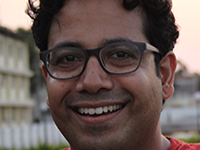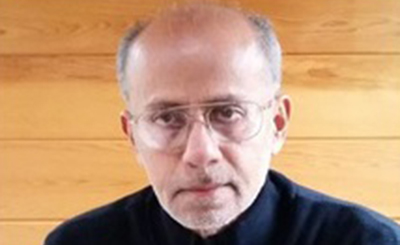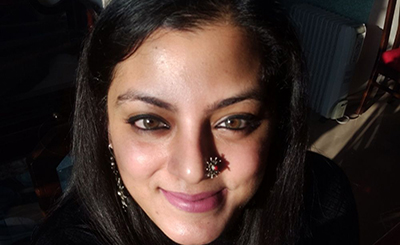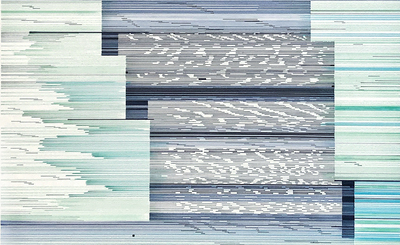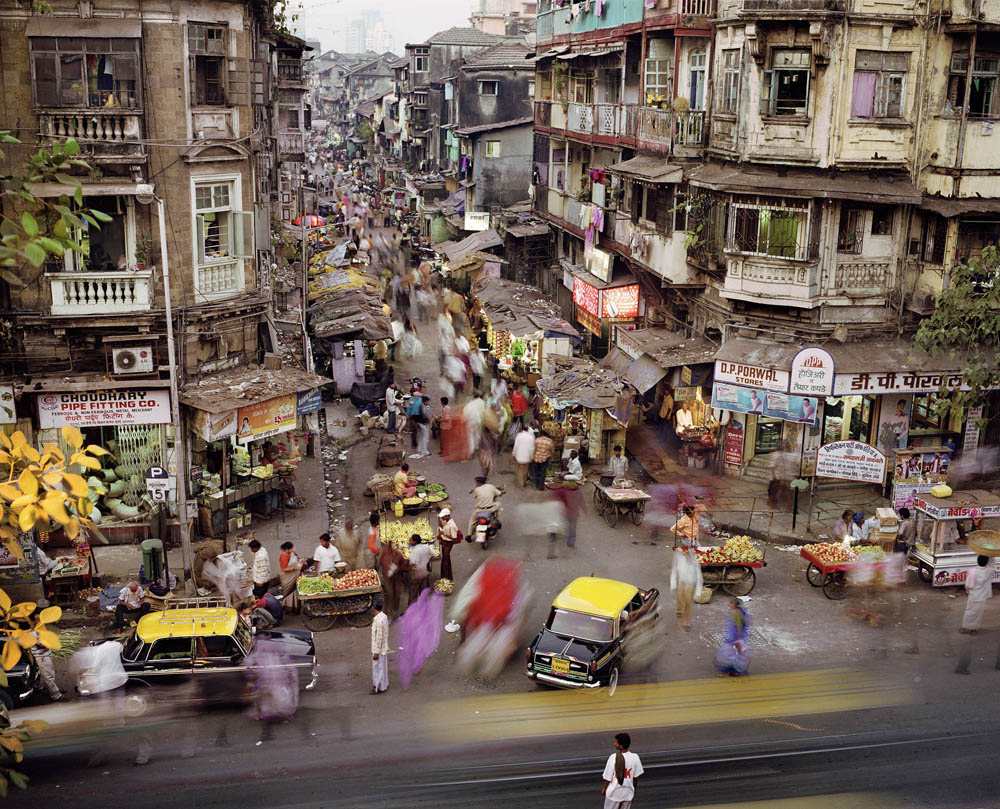
Kolkata, 2008, by Martin Roemers
An excerpt from The Epic City: The World on the Streets of Calcutta by Kushanava Choudhury, published by Bloomsbury India
The winds came first. They arrived suddenly. What was the English word for these winds? Gusts? Gale forces? A tempest? In Bengali we call it jhor, aspirated, onomatopoeic. Jhawwwwr.
The jhor upturned the tenuous lives of tarps and tenterhooks. The tarpaulin roofs of pavement eateries began writhing, then flying open like giant capes. The jhor propelled the darkness. I heard the whoosh of the wind, the gurgling gorjon of clouds, then the beating of rain. The monsoons had arrived.
I took shelter under a shop’s tarp. The ferocity of those drops drew lakes on the pockmarked pavement. The lid of a jar floated by like a little round tugboat. Two teenage boys in vests and sandals rode up on a motorbike, drenched, looking to buy cigarettes, and rode off. A taxi with arthritic wipers passed by, all its windows rolled up, the passengers squished together exchanging their warm breath.
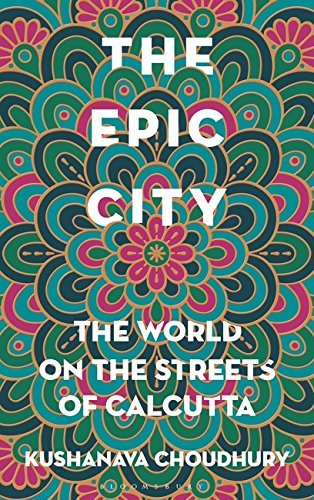
A crowd of us had sought refuge under the tarp. It was pouring from above, from the side, from every direction. We teetered on ever-shrinking islands of dry earth. The tarp was now heaving with water. It sagged and water tapered though a furrow and poured down like from an open tap. Soon we would be soaked.
Moments like these had seemed so thrilling were when we were small: rainy days off from school and paper boats to sail as streets turned to rivers, a Bengali boy’s vision of Venice. Now, I worried about all the trash piled in the streets, all that dog shit flowing together in those streams, ferrying disease and calamity.
Our fights came like the jhor. It was a blessing that there were so many rooms in our flat – all the more doors for Durba and i to bang. This time it was about Barista, an upscale coffee chain that had come up in our para. Barista was air conditioned, set off from the road. What a difference air conditioning made in keeping all the elements out, not just the heat but dust, smells, and most of all, noise. The city is a soundscape — politicians’ street-corner speeches, loudspeakers belching Bollywood music, promoters yelling business deals into their cell phones, the cadences of passing hawkers, the tung-tung of trams, the calls of bus conductors from footholds. You could listen to a tea shop, a para, a city as if it were a symphony. Peering out from Barista, the city seemed set on mute.
For Durba, the café was a place where she went to work, to relax, a refuge among the detritus. One morning, we were quibbling and I said, ‘You want to live and die in a Barista.’
The jhor arrived. The whoosh and bang, sturm und drang, the maelstrom.
‘Who are you here?’ Durba asked. ‘You wouldn’t think twice about going to Starbucks in America, but here, oh no, you’re a Bengali bhodrolok. You must drink tea from a tea shop served by a ten-year-old boy while you discuss Marxism with your bhodrolok friends.’
‘All you want is to escape to a mini America,’ I said.
‘The person you are here has nothing to do with what you are like in America.’
‘What is so horrible about Calcutta that it needs to be escaped?’
It was a way some people tried to live in Calcutta, pretending to belong to a world that is perpetually not only climate-controlled but socially controlled. From their little glass chambers, they had nothing but shame and disdain for the world in which they lived. ‘Ooof!’ they said when they stepped outside of their air-conditioned glass chambers and walked two steps to their air-conditioned, chauffeured cars. ‘Ooof!’ they said when they had to deign to interact with a guard, a shopkeeper, a clerk. Their haughtiness comprised entirely of surfaces, the way they intoned Bengali words with an odd inflection, the way they mixed in English words unnecessarily in their speech, not to express their thoughts but to make distinct their difference. Their city shamed them. They were only Calcuttan accidentally, they thought, born there by mistake when they really belonged in Paris, London or New York. But like Rajendralal’s Marble Palace, these creatures could exist only in Calcutta. Their Ooofs and sighs and Beng-lish intonations made no sense anywhere else.
‘What a world there is around you!’ I wanted to grab them and say, this city of such curiosities and possibilities, this amalgam of all that we modern humans have been, in all our glory and callousness, and all that we can yet become.
‘You are an American from New Jersey,’ Durba said. ‘You were born in Buffalo. You want to make me feel guilty about going to Barista, you American hypocrite? Who do you think you would marry who would be happy here? Except a little bou you can get from an arranged marriage who will cook you shukto and bhaat. Which of your friends from Yale or Princeton would last out here?’
Then she would list a series of women as potential alternatives for the position of spouse, as if to say, ‘None of them is as tough as me. I am the best option around.’
Durba’s way of thinking — as if I had gone comparison-shopping when falling in love — made no sense to me at all. When the feuds ended badly, she would say that I was ‘a fake Gandhian fraud’, that my return carried with it some bogus idea of salvation. Hypocrite. Fake. Fraud.
In the end it always came back to themes we had debated from our earliest days together, between the Indian who did not want to live in India — amid its mediocrity and moral compromises — and the American who insisted on returning for reasons he could not yet fully articulate, for reasons that were sentiments and intuitions, not really reasons at all. In Calcutta those pitterpatter April-shower arguments became full-blown monsoons.
How could a marriage be built in this climate? The city seemed to conspire against us.
At night I lay alone, unable to sleep. The insomnia of earlier years returned, new miseries triggering familiar symptoms.
‘The neighbourhood lies in sleep with doors closed/But I keep hearing the night knocking at my door,’ the poet Shakti wrote, ‘In my heart, half-dissolved, long-travelled/I fall asleep within pain/Suddenly I hear the night knocking at my door.’
Day after day, I lingered in bed till after noon, the hangover of dreams still clinging to me. I had a recurring dream of Calcutta covered in snow. Durba said it was my subconscious telling me I wanted to be back home in New Jersey. Was it her interpretation, or was it her twist of the knife?
‘Aha, you phoney, you would rather not be here yourself.’
When we fall in love, we each feel our story is unique. But when we fight, we learn how pitifully common we are, how like every other warring couple everywhere. None of our education and upbringing has protected us from this banal fate. I could hear myself acting like my feuding uncles and aunts, shouting, ‘Bullshit-No Bullshit,’ playing insult pingpong over the dinner table while the rice grew cold. Each time, I saw the jhor coming and I stood there, waiting helplessly for the torrent. It would be smooth sailing, they all said. The first year of marriage was supposed to be bliss. In those dreams of a tranquil snowcapped city perhaps it was not Calcutta I sought to escape, but our private hell.
In Dida’s house my grandparents had had separate bedrooms, serving and volleying their invectives across the open air of the long dalan. In that game of long-distance disputes, there was an aspect of sport. The capacious venue and our spectatorship provided each quarrel its due and then let it dissipate. That older order of living in a crowd with so many nosy mothers, brothers, nephews and aunts, seemed to buffer the blows between two people. I knew, too, from my own childhood that that older order was thick with politicking and intrigue. Better to go off and live apart, in separate rooms, separate flats. But in those truncated lives jammed into little boxes, those flats for a husband, wife and child, with 600 square feet and a cage called a veranda, where was the space to air discontent, and the people to serve as buffers and blunt the blows?
Others in our position might have sought the services of an astrologer, made offerings at Moulali’s mazar or at Kalighat temple. Durba held fast to American dogmas. She had determined that we needed couples counselling. From somewhere she found a German marriage counsellor. I had never met a German in Calcutta – white people of any nationality were so rare that they acquired the status of local celebrity. We met the counsellor in her home in a high-rise flat. She had her blonde hair in two braids done up into a crown, and wore a maxi, the shapeless printed kaftans that some Bengali women wear at home when they are not expecting visitors. We spent forty minutes fielding sharp questions that felt like a police interrogation. When we left her office, for the first time in a long time, Durba and I were united about something. Better to risk divorce, we agreed, than to sit through that again.
Excerpted from The Epic City: The World on the Streets of Calcutta by Kushanava Choudhury (Rs 499, pp. 272), published by Bloomsbury India, with permission from Bloomsbury India. Buy the book on Amazon
More from The Byword
Comments
*Comments will be moderated



